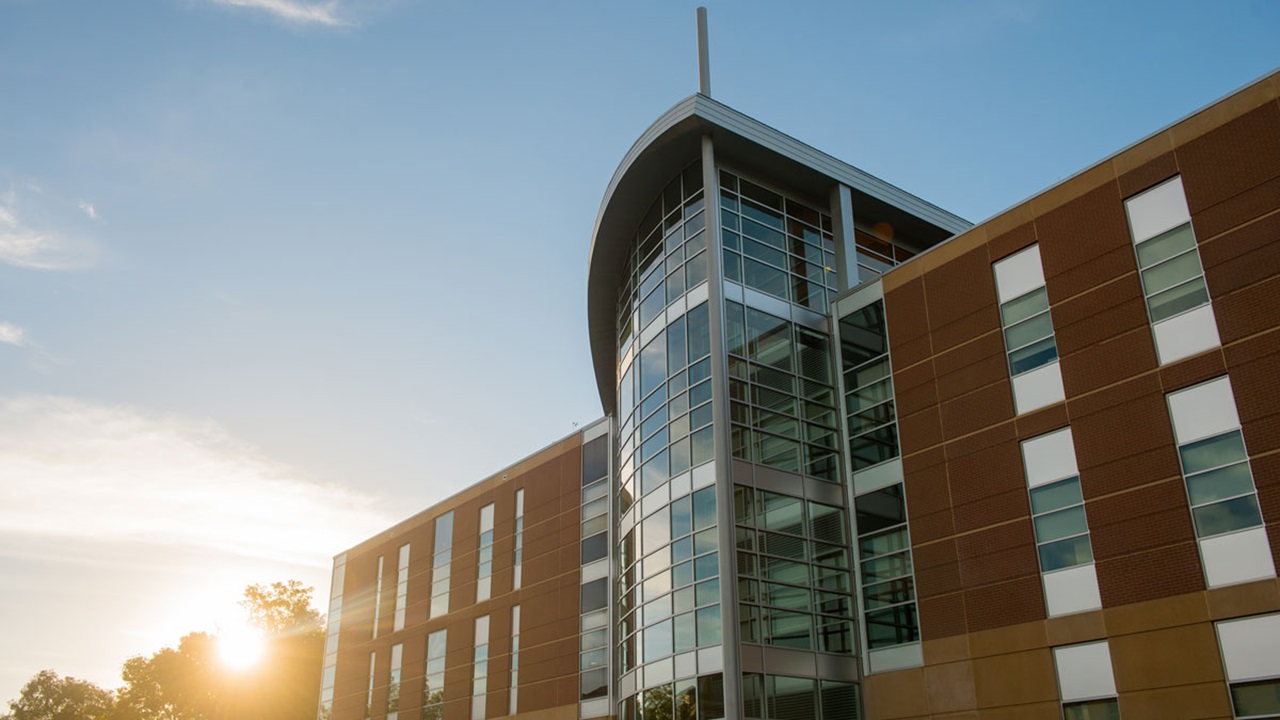Health Sciences Degree Celebrates 10 Years

The health care industry in South Dakota grew substantially during the past several decades, and significant growth is expected to continue into the foreseeable future. This is due to an aging population, an emphasis on disease management and an aging health care workforce. Projections indicate thousands of competent, qualified health care professionals will be needed in the areas of direct care and support services.
The mission of the School of Health Sciences is to develop scholars, practitioners and leaders in health and human services to meet the workforce and health care needs of South Dakota, the region and beyond. To that end, in 2007, the school began to develop an undergraduate health sciences program. The intent of the new degree was to prepare students for entry-level employment in health care or to ensure their eligibility for post-graduate training programs in health or medical professions.
In 2009, USD unveiled one of the first undergraduate health science programs in the nation. The program grew rapidly. In the fall of 2009, 24 students enrolled, and by the fall of 2011, 349 students were enrolled. Over the past 10 years, 612 students graduated with Bachelor of Science in Health Sciences degrees. Some graduates continued with graduate level education to become physical therapists, occupational therapists, physician assistants or medical doctors. Other graduates work in health-related areas such as insurance, the pharmaceutical industry, administration and public health.
Initially, the program was designed to offer three areas of emphasis: 1) pre-professional studies for students who aspire to attend graduate school; 2) health care studies for students who wish to obtain employment in an entry-level health profession and 3) career advancement studies for non-traditional students who intend to continue their education to obtain a Bachelor of Science degree. The program continues with these three emphases, although opportunities for students have expanded to include options for minors, specializations and transfer opportunities. Some of these opportunities include a minor in public health and a minor in interprofessional disability services. Students can pursue a career in emergency medical services by obtaining a paramedic specialization, which is made possible by a joint partnership with Sanford Health.
Other options for students include credit transfer opportunities with the following technical institutions: Avera McKennan School of Radiologic Technology, Lake Area Technical Institute, Mitchell Technical Institute, Sanford School of Radiography, Southeast Technical Institute, Western Dakota Technical Institute and Western Iowa Community College. Students can graduate with both an associate degree from a technical college and a Bachelor of Science in health sciences degree from USD in four years. Students can begin their education at USD, or at the technical college, which makes this a flexible option to meet individual needs. Students have taken advantage of transfer agreements in dozens of professions, including radiologic technology, cardiac ultrasound, diagnostic medical sonography, surgical technology and others.
The health sciences curriculum includes courses in communication, professionalism, ethics, patient safety and quality improvement, technology, leadership and cultural competence. In addition, students learn about the U.S. health care system and public health. The program is offered both on campus and online, and is flexible to allow employed, busy professionals to achieve a Bachelor of Science degree while managing work and family responsibilities. The professors in the program have diverse professional backgrounds with a wide range of professional expertise.
We are proud of our graduates who began or advanced their careers with the Bachelor of Science in health sciences and are now working in the health care industry in South Dakota and across the nation.
To celebrate this success, a 10th anniversary celebration is planned for Oct. 17, 2019 from 4:30 to 6:30 p.m. in the Neuharth Freedom Forum Room at the University of South Dakota campus in Vermillion.
Beneficial Transfer Agreements with Area Technical Institutions
Program-to-program articulation agreements are formal agreements between USD and specialized technical programs to transfer block credits toward the Bachelor of Science degree in health sciences. Students who are currently enrolled or are graduates of the following schools and programs may benefit from these articulation agreements:
- Avera McKennan School of Radiologic Technology, Sioux Falls, South Dakota
- Lake Area Technical Institute, Watertown, South Dakota
- Mitchell Technical Institute, Mitchell, South Dakota
- Sanford Radiography Program, Sioux Falls, South Dakota
- Southeast Technical Institute, Sioux Falls, South Dakota
- Western Dakota Technical Institute, Rapid City, South Dakota
- Western Iowa Tech Community College, Sioux City, Iowa
